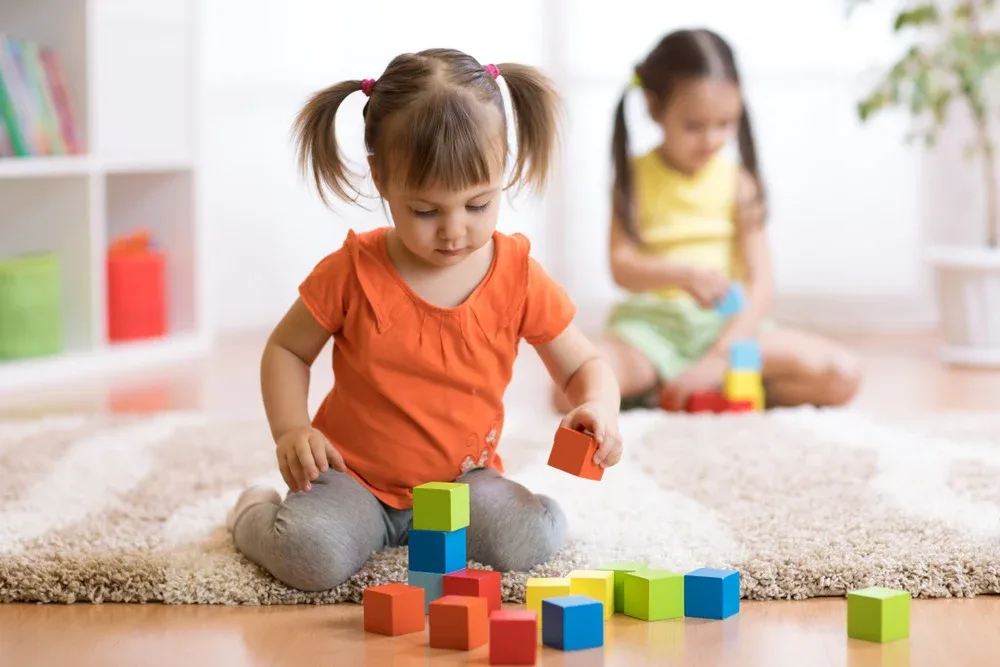Daycare is more than just a place for children to spend time while their parents are at work. It’s a vibrant, dynamic environment where young minds are shaped and nurtured. Understanding the role of daycare in child development is crucial, as these early experiences lay the foundation for a child’s future. This article will explore the various positive effects of daycare on child development, from social and emotional growth to cognitive and physical development. We’ll dive into how daycare settings help children learn to interact with the world around them, developing skills that are critical for their overall growth and well-being. Contents Daycare centers serve as a microcosm of society, providing children with their first experiences of socializing outside the family circle. Here, they encounter peers from diverse backgrounds, learning to share, cooperate, and engage in group activities. These interactions are fundamental in shaping children’s social skills, teaching them about empathy, conflict resolution, and the importance of friendship. The early socialization experiences in daycare lay the groundwork for how children will interact with others throughout their lives, making it a critical aspect of their development. In daycare centers, children are exposed to a variety of structured learning activities designed to stimulate their cognitive development. These activities, ranging from simple puzzles to group storytelling sessions, encourage critical thinking, problem-solving, and creativity. Such an environment fosters a sense of curiosity and a love for learning in children. The impact of these activities extends beyond daycare, as they help develop cognitive skills that are crucial for academic success and lifelong learning. Daycare is not just a place for academic and social learning; it’s also a nurturing environment where children develop emotional intelligence. In this setting, children learn to identify and express their feelings, understand the emotions of others, and develop coping mechanisms for various situations. The daycare environment, with its unique challenges and opportunities, helps children learn to manage separation anxiety, build resilience, and develop empathy. These emotional skills are crucial for personal development and form the foundation of healthy emotional well-being. Physical activity is a core component of any quality daycare program. Through various games and activities, children engage in essential physical play, which is vital for their health and motor development. These activities, ranging from running and jumping to more structured sports, help in developing coordination, strength, and fine motor skills. Additionally, physical play in daycare encourages a lifelong habit of regular exercise, contributing to overall health and well-being. Daycare settings are melting pots of linguistic diversity, offering children a unique opportunity to develop their language and communication skills. In this environment, they are exposed to new words, different sentence structures, and varied tones of communication. Interaction with peers and caregivers in daycare enhances children’s verbal abilities, helping them become effective communicators. This exposure is particularly beneficial for language development, as it lays the groundwork for advanced language skills in later years. One of the less talked about but equally important aspects of daycare is its role in fostering independence and self-confidence in children. In a daycare setting, children are encouraged to perform simple tasks on their own, make choices about what activities to engage in, and take responsibility for their actions. These experiences are instrumental in building self-esteem, promoting a sense of autonomy, and preparing children for the challenges of the future. Daycare plays a crucial role in preparing children for the transition to formal education. Through various pre-literacy activities like storytelling, singing, and alphabet games, children develop foundational skills that are essential for academic success. The structured nature of daycare routines also helps children adapt to the formal educational environment, making the transition to school smoother and less intimidating. In our increasingly globalized world, the ability to understand and respect diverse cultures is more important than ever. Daycare centers, where children meet peers from various backgrounds, play a significant role in fostering cultural awareness and diversity. These early interactions help children appreciate differences, understand the value of inclusivity, and develop a respect for all cultures. This early exposure is key in shaping open-minded, empathetic future citizens. For many parents, the decision to send their child to daycare is not just about convenience; it’s about ensuring their child’s development in a nurturing environment. Knowing that their children are in a safe, educational, and socially enriching setting provides parents with peace of mind. This positive feeling extends to the overall family dynamics, allowing parents to maintain a healthier work-life balance, which in turn benefits the child’s home environment. While the benefits of daycare are numerous, choosing the right daycare is crucial for maximizing these benefits. Parents should consider factors like the qualifications of the staff, the quality of the curriculum, and the overall environment of the daycare. It’s also important to balance the influences of daycare and home, ensuring that children receive consistent messages and values in both settings. The choice between daycare and home care is a significant one for many families. While home care offers a familiar environment, daycare provides structured learning and socialization opportunities that are hard to replicate at home. Quality daycare centers can offer a more diverse range of activities and interactions that are crucial for holistic child development. However, the key lies in the quality of care, whether at home or in daycare. Recent research in the field of early childhood education highlights the significant positive impacts of quality daycare on various aspects of child development. These studies are guiding the future of childcare practices, helping parents, educators, and policymakers understand the best approaches to nurturing young minds. Child development specialists and educators emphasize the importance of quality daycare in shaping a child’s future. Their insights and recommendations are invaluable for parents navigating the complex world of early childhood education. These experts often highlight the importance of a stimulating, safe, and inclusive daycare environment in fostering healthy development.
Children often start daycare between 1 to 3 years old, but it depends on each child’s development and family needs. Daycare can positively enhance social skills, teaching children how to interact, share, and resolve conflicts with peers. Yes, quality daycare can foster early learning skills, laying a foundation for academic success. Look for qualified staff, low child-to-staff ratios, a clean and safe environment, a structured curriculum, good communication, and positive reviews. Gradual introduction, consistent routines, comfort items from home, and open communication with caregivers can help ease the transition. Daycare is not just a childcare solution; it’s a vital contributor to a child’s overall development. From fostering social skills to preparing for formal education, the benefits of daycare are extensive. It’s a place where children learn, grow, and flourish, setting the stage for a bright and successful future. If you are looking for a daycare that truly understands and values the importance of your child’s development, consider DeeCyDa Daycare’s Infant Care program with it’s focus on creating a nurturing, educational environment that has a positive effect on your child’s development. Enroll your kid today!

The Role of Daycare in Early Socialization
Cognitive Development through Structured Learning
Emotional Growth in a Daycare Setting
Physical Development and Daycare Activities
Language and Communication Skills
Promoting Independence and Self-Confidence
Preparing for Formal Education
Cultural and Diversity Awareness
Parental Peace of Mind and Children’s Growth
Challenges and Considerations in Daycare
Comparative Analysis: Daycare vs. Home Care
Latest Research and Studies on Daycare Impact
Expert Opinions and Recommendations
FAQs
What age is best for a child to start daycare?
Can daycare influence a child's academic performance?
What should parents look for in a quality daycare?
How do children adapt to the transition from home to daycare?
Conclusion

